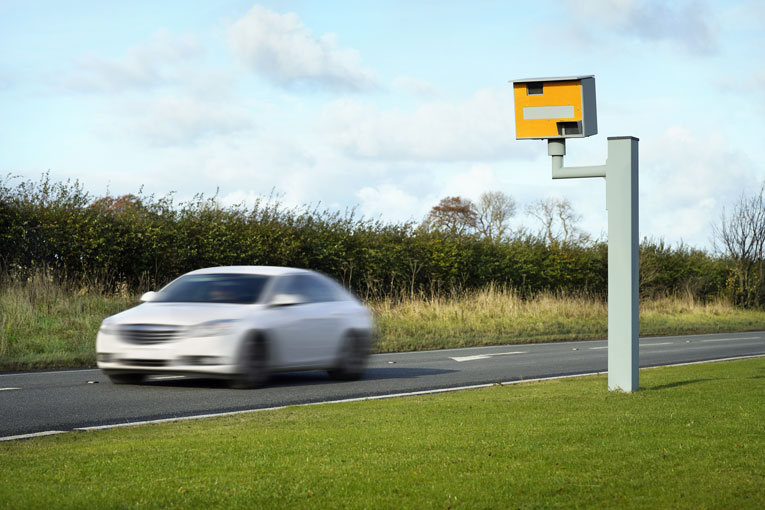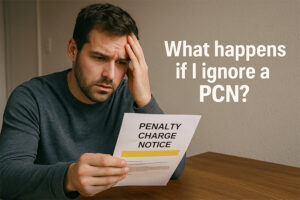How much are speeding fines in the UK?

Intro: British roads witnessed over 2.7 million speeding offences in 2023, resulting in fines exceeding £45 million. Speed limits and their enforcement directly impact road safety, with penalties designed to deter dangerous driving behaviours. The complexity of speeding penalties and potential consequences make professional legal guidance invaluable, particularly for cases involving excessive speeds or special circumstances.

Key Takeaway:
Fines are based on your weekly income and the severity of the speed limit violation.
Read this article to understand how fines are calculated, regional differences, and when you might benefit from legal advice.
Calculation of speeding fines: Understanding the 2024 speeding fine structure
The question, “How much will I be fined for speeding in the UK?” is common for drivers. In 2024, fines are calculated using a formula based on weekly income and the level of speed violation.
Fine calculation framework
Courts use a three-band system to determine the severity of speeding offenses and the corresponding penalties. Each band corresponds to a different level of speed violation and carries financial penalties based on a percentage of the offender’s weekly income:
| Band | Speed vs Limit | Income Percentage | Starting Point | Points/Ban | Example Fine (£50k salary)* |
| A | 1-10 mph over | 25-75% | 50% | 3 points | £481 |
| B | 11-20 mph over | 75-125% | 100% | 4-6 points | £962 |
| C | 21+ mph over | 125-175% | 150% | 6 points or ban | £1,442 |
*The example fines are calculated based on a weekly income of £961 (£50,000 annual salary divided by 52 weeks)
Speed violation categories by road type
Understanding your potential speeding fine starts with knowing how far over the limit you were driving. Each speed limit has its own thresholds for minor, medium, and major violations:
| Speed Limit | Band A
(Minor) |
Band B
(Medium) |
Band C
(Major) |
| 20 mph (Residential) | 21-30 | 31-40 | 41+ |
| 30 mph (Urban) | 31-40 | 41-50 | 51+ |
| 40 mph (Urban/Rural) | 41-55 | 56-65 | 66+ |
| 50 mph (Rural/Dual) | 51-65 | 66-75 | 76+ |
| 60 mph (Single) | 61-80 | 81-90 | 91+ |
| 70 mph (Dual/Motorway) | 71-90 | 91-100 | 101+ |
Financial penalties structure
The minimum speeding fine begins at £100, but the total financial impact often extends beyond this base amount. The complete penalty structure for 2024 includes:
- Fixed Penalty Notice (FPN): A standard £100 fine plus 3 penalty points for minor offenses.
- Regular roads: Maximum fine of £1,000 for more serious violations.
- Motorway speeding fines: Enhanced maximum penalty of £2,500.
Additional mandatory costs are applied to court-processed cases:
- Court costs: Ranging from £85 to £850.
- Special reasons hearing: Additional £650 if required.
- Victim surcharge: 10% of the total fine (minimum £34).
Factors affecting fine severity
Your final fine amount may be increased significantly if any of these aggravating factors are present:
- Poor weather conditions (+25%)
- Previous convictions (+up to 100%)
- Heavy traffic or proximity to schools (+50%)
- Failing to respond to a Notice of Intended Prosecution (+50%)
Regional differences in speeding fines: England, Scotland, and Wales
Speeding enforcement varies significantly across UK regions. England and Wales share a common system, while Scotland maintains distinct procedures:
| Region | Type of Penalty | Details |
| England and Wales | Fixed penalty notice | £100 fine + 3 penalty points |
| Court fines | Up to £1,000 (up to £2,500 on motorways) | |
| Speed awareness course | Available (costs between £85-£100) | |
| Points validity | Points remain on record for 4 years | |
| Payment deadline | 28 days | |
| Scotland | Fixed penalty notice | £100 fine + 3 penalty points |
| Court fines | Up to £1,000 (up to £2,500 on motorways) | |
| Speed awareness course | Not offered | |
| Points validity | Points remain on record for 5 years | |
| Prosecution handling | Managed by Procurator Fiscal | |
| Additional notes | Separate judicial procedures, with varied rehabilitation course providers |
How to contest a speeding fine?
To contest a speeding ticket, you must respond to the Notice of Intended Prosecution (NIP) within 14 days. Essential evidence includes:
- GPS data, if available.
- Signed witness statements.
- Dashcam footage showing speed.
- Speedometer calibration certificate.
- Photos of road conditions and signs.
To formally contest the ticket, reject the Fixed Penalty Notice in writing and request a court hearing. Grounds for contesting include:
- Emergency situations.
- NIP received after 14 days.
- Missing or unclear signage.
- Incorrect driver or vehicle details.
- Faulty speed detection equipment.
How to check your speeding fine status?
To check your speeding ticket status, use the UK government’s online portal:
- Visit www.gov.uk/check-penalty.
- Enter your penalty notice number and vehicle registration.
- Check payment and status update.
If you cannot access the online system, you can verify your fine status through these official channels:
- Contact your local police force.
- Call DVLA enforcement (0300 790 6801).
- Check magistrates’ court notices.
- Review postal notifications.
Checking points on your licence
Many drivers ask “can you check if you’ve been caught speeding in the UK?” The quickest way to check your driving record is through the DVLA’s online service:
- Visit www.gov.uk/view-driving-licence.
- Enter your license number, National Insurance number, and postcode.
If you prefer not to use the online service, several alternative checking methods are available:
- Request paper driving record by post (£5 fee).
- Visit your local Post Office with photo ID.
- Contact DVLA phone service.
- Use approved checking services like Gov.UK Verify.
Do I need a traffic law solicitor?
A traffic law solicitor becomes essential when facing serious speeding charges or complex circumstances. These scenarios particularly warrant legal representation:
Situations requiring legal help include:
- Risk of driving ban.
- Speeds exceeding 100mph.
- Special circumstances pleas.
- Disputing technical evidence.
- Repeat offenses within 3 years.
- Professional drivers protecting their licence.
- Speeding in special zones (schools, construction).
Consider the benefits of professional representation:
- Higher success rate in court.
- Protection of driving licence.
- Complex evidence interpretation.
- Reduced penalties in 68% of cases.
- Negotiation of alternative penalties.
- Expert handling of technical defences.
FAQs
- What happens if stopped by police for speeding? You may receive an immediate Fixed Penalty Notice or, for severe cases, a report for court prosecution.
- What are the benefits if you plead guilty early? Early guilty pleas receive a 33% fine reduction, not applicable to Fixed Penalty Notices.
- What are A20 speeding fines? A20 speed cameras enforce standard fines: £100 minimum, up to £1,000 maximum.
- What happens to foreign drivers? Foreign drivers pay on-the-spot fines or provide a UK address. Failing to pay can lead to vehicle seizure.
- Can you go to prison for speeding? Only in extreme cases (e.g., speeds over 100 mph). Fines and points are more typical outcomes.
- Do insurance companies check speeding fines? Speeding convictions usually increase premiums by 20-50% for four years.
Understanding UK speeding fines is vital for maintaining driving privileges and managing potential consequences. Whether it’s navigating a fine, checking points, or consulting a solicitor, having knowledge of the system allows for proactive, informed decisions on the road.
Need help with your speeding fine?
Visit Qredible to find an experienced traffic law specialist near you. Your first consultation helps determine if legal representation will benefit your case.
KEY TAKEAWAYS:
- Speeding fines are calculated based on your weekly income and violation severity, with penalties ranging from £100 to £2,500 for motorway offenses, plus penalty points on your licence.
- Regional variations exist across England, Wales, and Scotland, particularly regarding speed awareness courses and prosecution procedures.
- You must respond to a Notice of Intended Prosecution within 14 days, either accepting the penalty or contesting the fine with valid evidence.
- Your licence status and points can be checked online through the DVLA portal, with points remaining active for 4-11 years depending on offense severity.
- Legal representation is essential for serious offenses, particularly when speeds exceed 100mph or you risk disqualification.
Do you need a solicitor?
Find a solicitor on Qredible in just a few easy steps
















